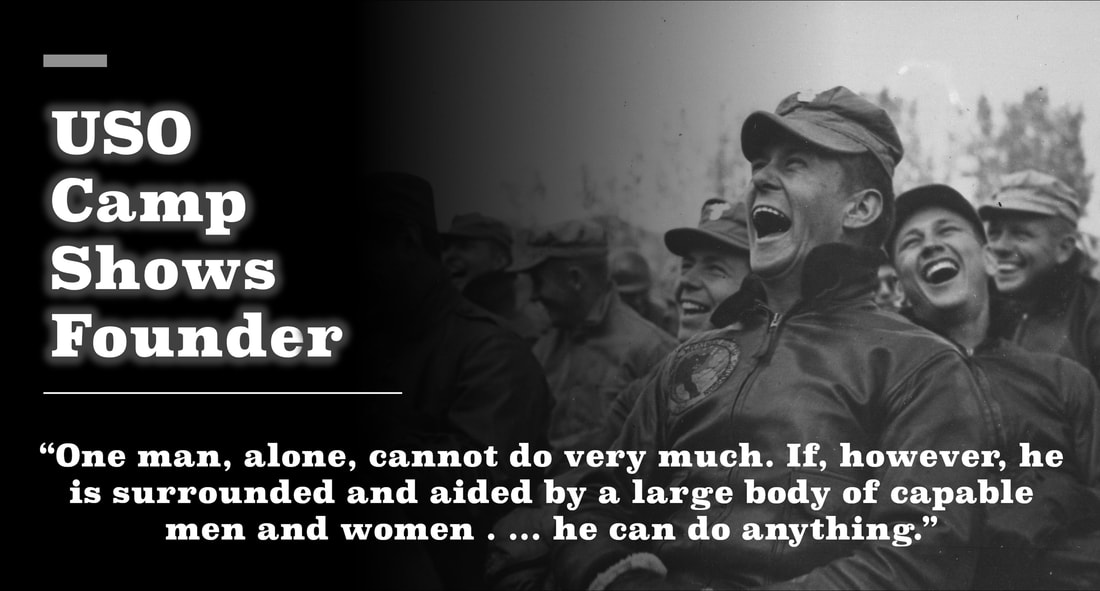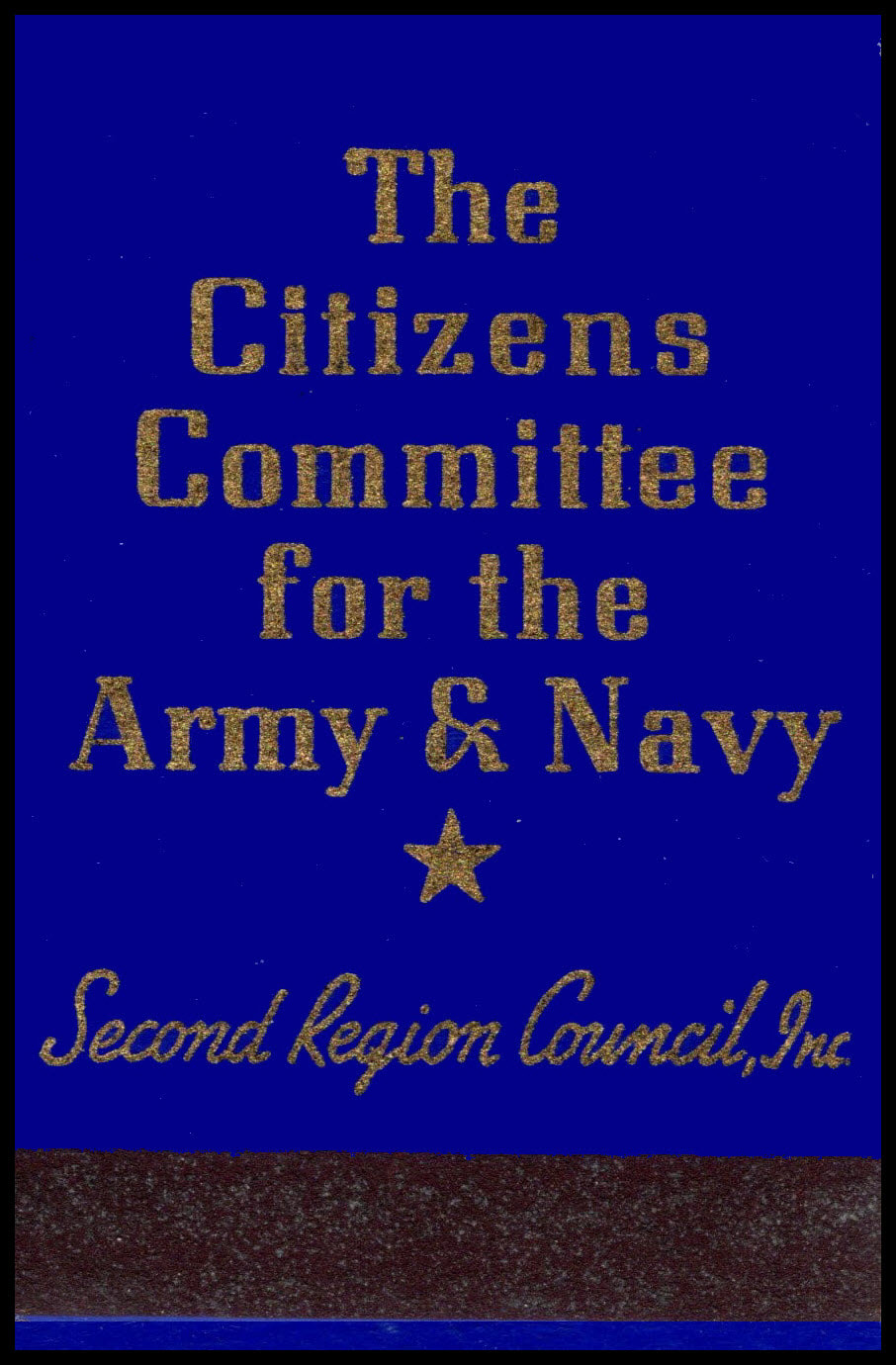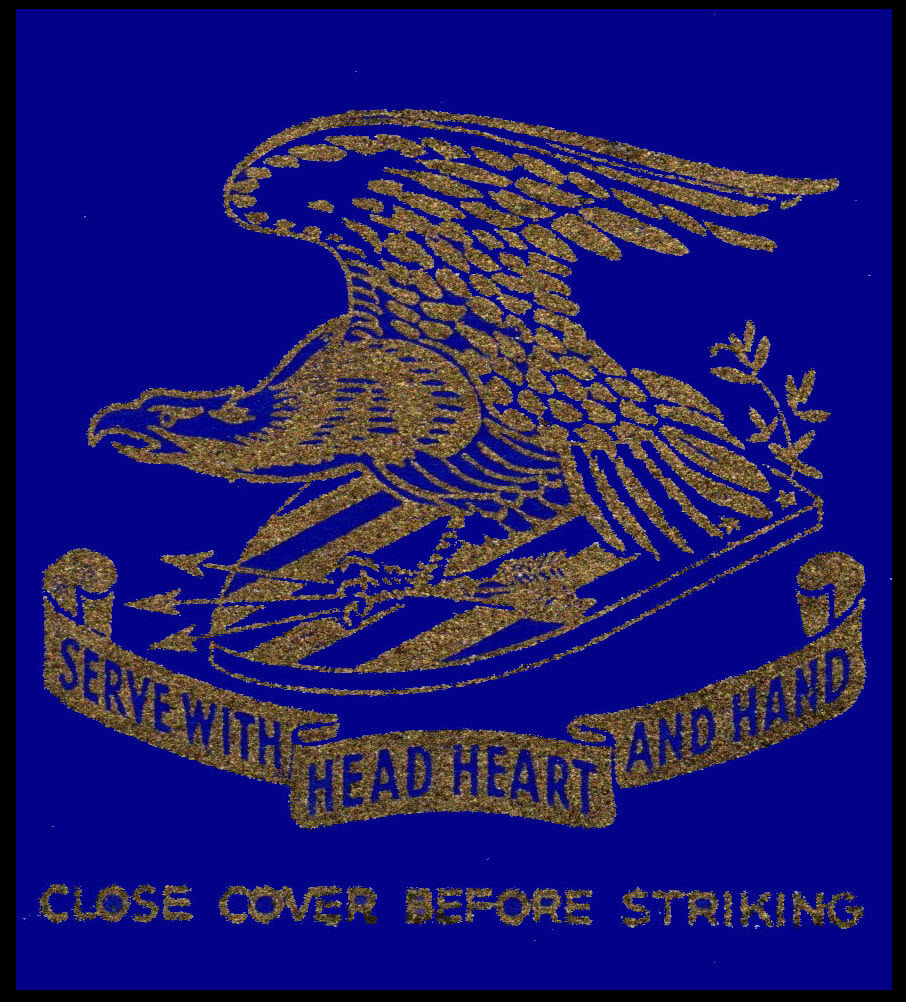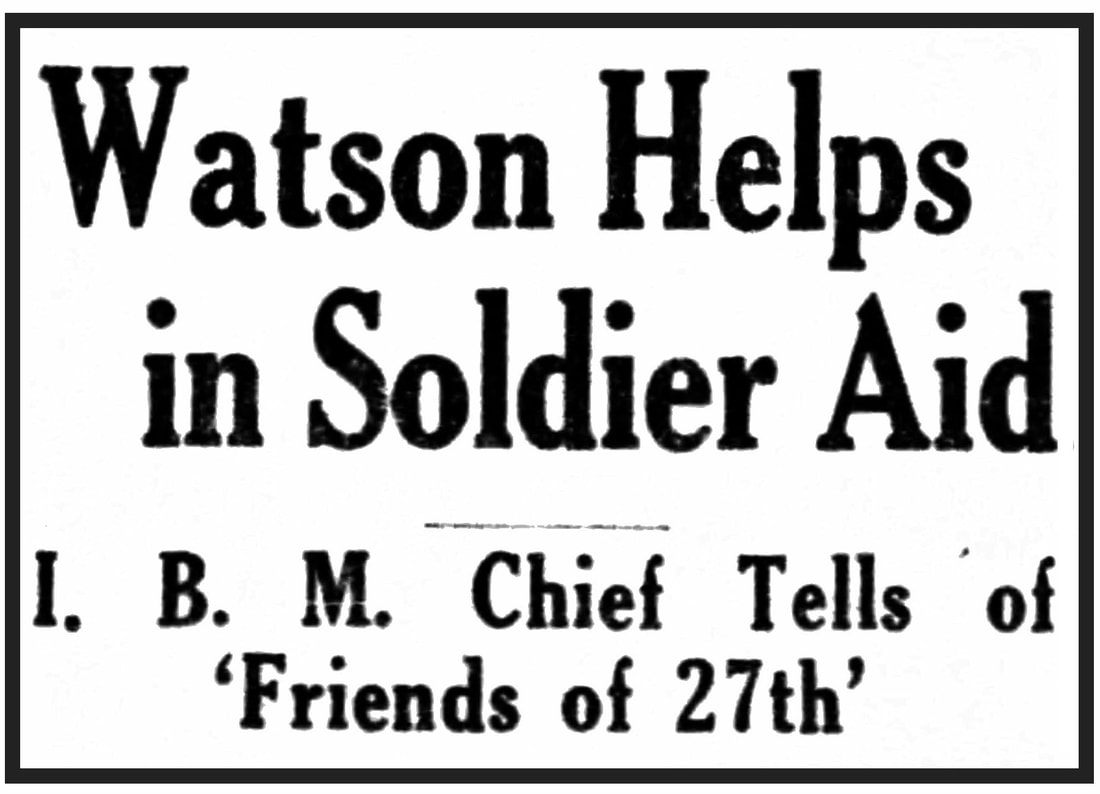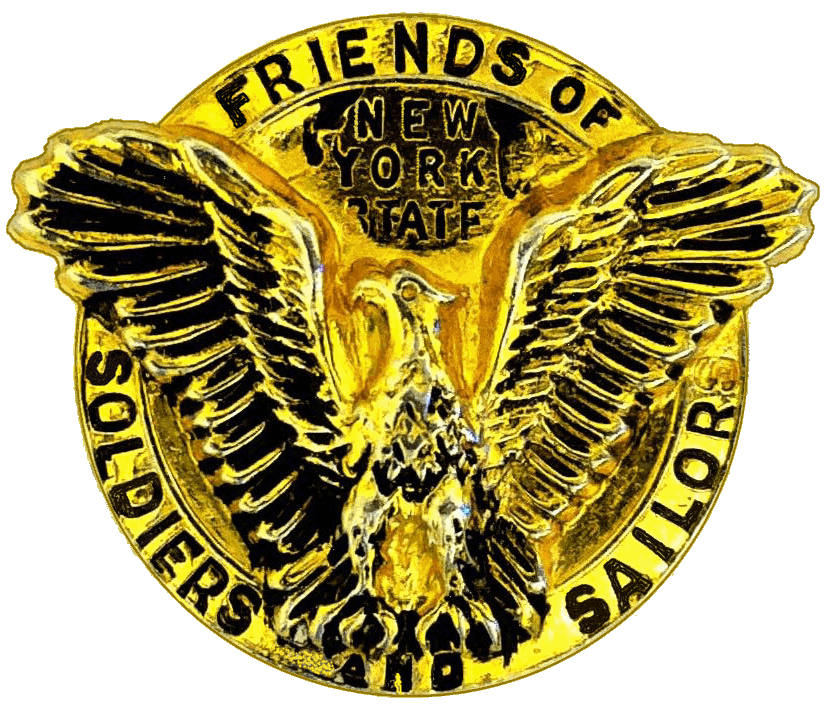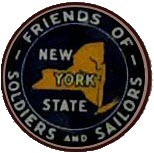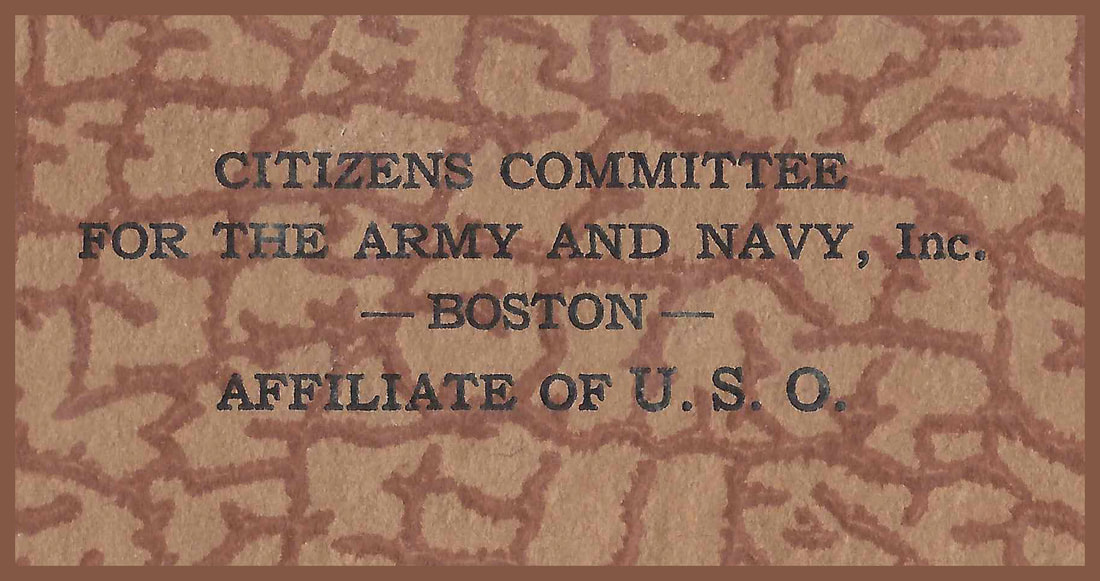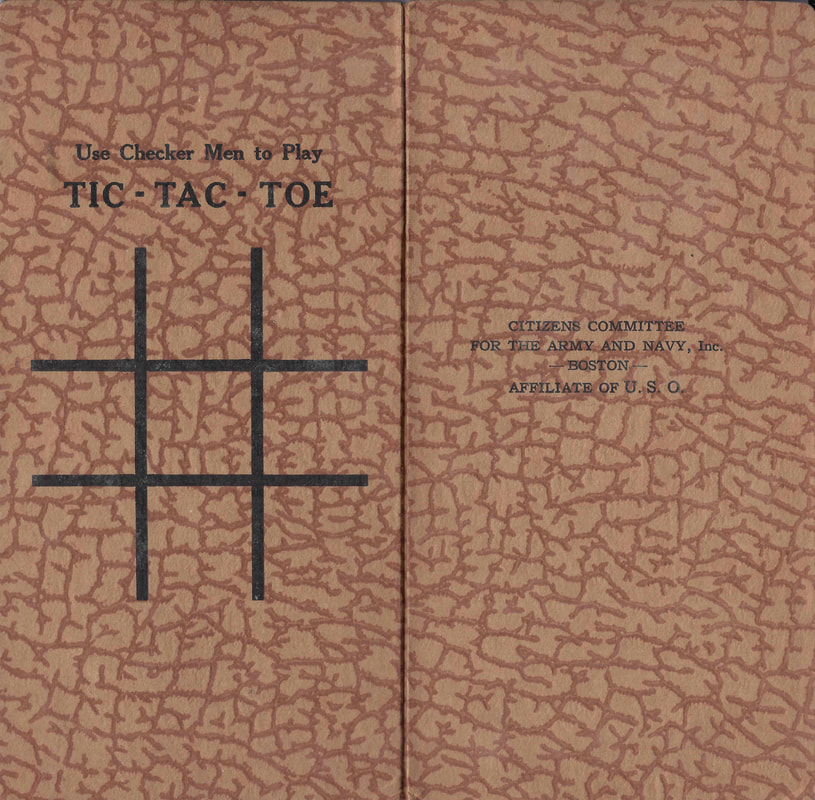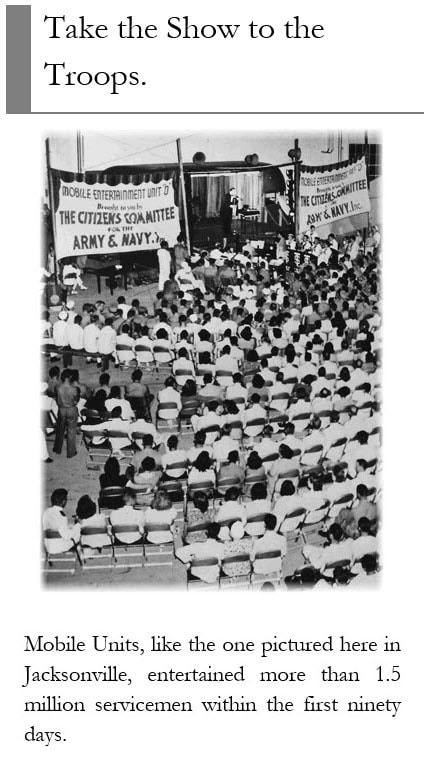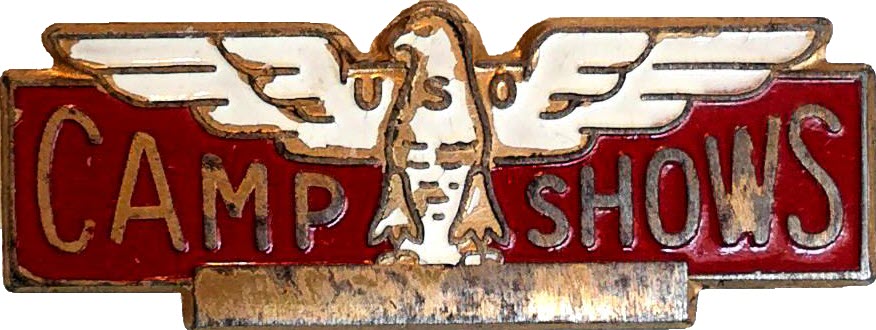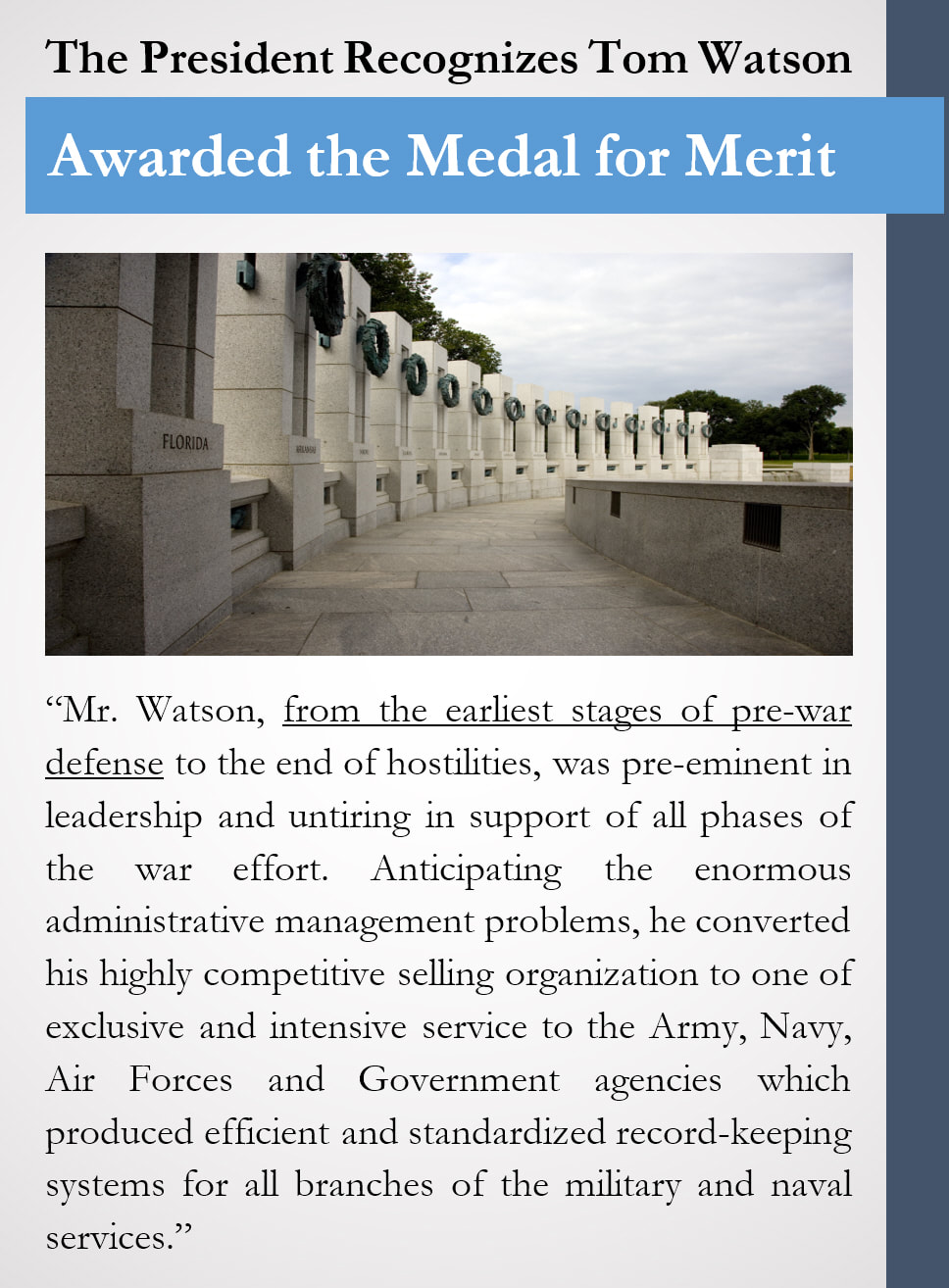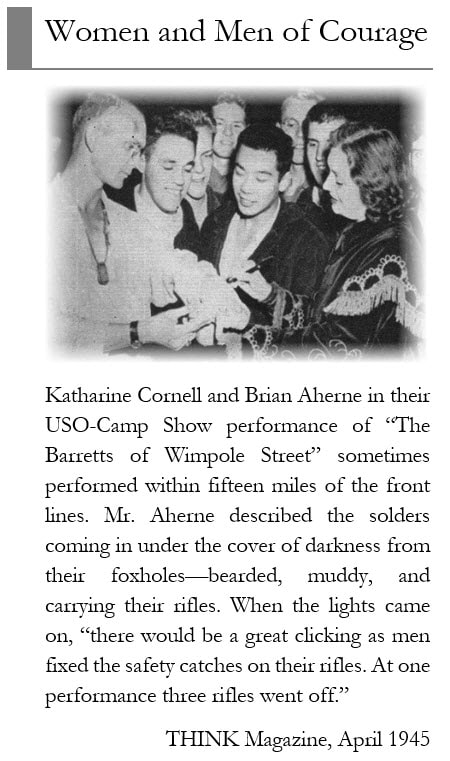Founder of the USO Camp Shows
Tom Watson Sr. and the USO Camp Shows
- Overview
- Watson and the Country Come Together to Support its Troups
- Friends of the 27th Division of New York
- Friends of the New York State Soldiers and Sailors, Inc.
- Citizens’ Committee for the Army and Navy, Inc.
- The Rise of the Citizens’ Committee’s Mobile Camp Shows
- Tom Watson Was One of Many that Deserves Credit
Overview
|
Seventy-five plus years ago a man that is considered one of America's greatest 20th Century industrialists displayed the greatness of his humanity by starting The Friends of the 27th Division of New York. From this humble start arose an organization that myself and other men of military service would find comfort in during the darkest of times. This organization brought humor, laughter and tears of joy to some of the most dismal and dangerous locations found anywhere in the world—places where death could and would find many in the audience after the show finished.
Bob Hope—more than any other man or woman—is the outward face of these shows; but unknown to most—until the publication of this article—this great entertainer stood upon another great man's shoulders—the shoulders of a businessman. This Chief Executive Officer gave birth, on November 26, 1940, to what would become one of the most well known and respected organizations within the United Service Organizations (USO). The organization was called The USO Camp Shows, and the businessman was Thomas J. Watson Sr., the traditional founder of IBM. |
Matchbook back cover produced for soldiers
|
When we celebrate Thanksgiving every year every serviceman that has ever attended a USO show should give thanks that not only can an American be a great industrialist but a great humanitarian. The following is a short excerpt from a future work coming in the next few years about Thomas J. Watson Sr.
It will be the next major book by Peter E. Greulich.
It will be the next major book by Peter E. Greulich.
Tom Watson Sr. and the USO Camp Shows
|
On September 16, 1940 the United States instituted the Selective Training and Service Act. By mid-October millions of young men were being registered across the nation for the draft. Within the State of New York, the 27th National Guard Division was called into service. Its commanding officer, General William N. Haskell asked Tom Watson to form a morale-building organization. Watson acted—as he would many times throughout the war—within weeks. He knew that most of these young men would be spending their first Christmas away from home. Because of the coming war, many of them would never see another.
It was initially an effort to provide for those in his home state of New York, but because of the times—and because of who Tom Watson was—the organization was never destined to remain so confined. |
Matchbook front cover produced for soldiers
|
- Friends of the 27th Division of New York
|
On November 26, 1940, a civilian organization entitled the Friends of the 27th Division of New York was organized under the chairmanship of Watson Sr. This organization was determined to show their support for the New York National Guardsman and draftees in various training camps. The organizational design was a decentralized committee membership that included representatives from every city that contributed at least one unit to the 27th Division.
Its primary goal was to sponsor entertainment and recreational events for soldiers during their period of training. |
Watson Sr. stated, “The first project to be undertaken will be the furnishing of Christmas gifts and remembrances to the men of the [27th] division, many of whom will for the first time in their lives be away from home on Christmas.” One of the local chairman probably stated it best: “We want to show the officers and men of the division that the people of the state appreciate the personal sacrifice. ... Every 27th Division man will have a Christmas box on Christmas morning, thereby eliminating many lonesome corners in the tents on that day.”
- Friends of the New York State Soldiers and Sailors, Inc.
|
Friday the 13th must have been a busy day for Watson Sr. and his staff, and a lucky day for all New York State servicemen. On December 13, 1940, Governor Lehman accepted an honorary chairmanship but requested, if there were enough funds, that the organization expand its coverage to include every New Yorker in the armed forces: National Guardsmen, Selective Service trainees and enlisted men.
|
The team accepted the challenge—the money would just have to be found. They changed their name to the Friends of the New York State Soldiers and Sailors, Inc. Watson Sr. then presented Mayor LaGuardia, along with his honorary chairmanship, the first of what everyone was estimating to be 25,000 yule gifts.
From a December 13, 1940 Binghamton Press Article which describes name change and Watson in charge
- Citizens’ Committee for the Army and Navy, Inc.
But now, so many people were getting involved to assist the troops that they were tripping over each other.
|
Someone had to take over and centralize critical tasks, decentralize fund raising, prioritize those funds to key projects, filter through creative ideas, work relationships, resolve issues and acquire personal and corporate donations of money, equipment and time.
Robert E Sherwood of the Playwrights’ Company and Bert Lytell of the Actor’s Equity Association requested such a change.
|
|
In early 1941, the Secretaries of War and Navy asked Watson Sr. to appoint a citizens’ committee. Its purpose was to oversee the coordination, supervision and delivery of professional camp shows. So the Citizens’ Committee for the Army and Navy, Inc. came into existence. From this point forward, the organization now carried a national perspective and coordinated the theatrical entertainment for the armed services.
Burns Mantle, a correspondent for the Buffalo Courier Express, wrote that this action would, “bring order out of the chaos that usually follows hit-and-miss methods of unorganized groups to provide volunteer entertainment for the [Army and Navy] camps.”
|
The pressure was now on Watson Sr. to make it happen.
The Rise of the Citizens’ Committee’s Mobile Camp Shows
|
The talent surrounding the Mobile Camp Shows did not just perform on stage. Robert Sherwood was an example of the quality of its volunteers. Talent, such as his, would make the chairman of any project successful.
In 1941, Mr. Sherwood had just won his third Pulitzer Prize for “There Shall Be No Night.” He had previously won two awards for drama in 1936 and 1939. He would go on to win the Academy Award for Best Screenplay in 1947 and a fourth Pulitzer in 1948. He is credited as the person that inserted the word “mobile” into the Mobile Camp Shows; he recommended traveling trailers. On May 28, 1941, the first Mobile Camp Show performed for the troops at Fort Dix. A Mobile Camp Unit (sometimes referred to as a Mobile Entertainment Unit) was a theater-on-wheels—a General Motors Corporation truck modified for theatrical performances. Each truck opened up on one long side with a hinged section that folded up as a roof and a second that folded down as the performance platform. Each camp show was staffed by a company manager, musician director, master of ceremonies, and a professional Vaudeville act or famous stage, screen or radio show celebrity. Orchestra support was provided by the soldiers. This pilot project of two performances in one night proved the concept. |
By the fall of 1941, the Citizens’ Committee’s seven independent traveling shows had reached 3,200,000 servicemen east of the Rockies. West of the Rockies other organizations were getting started. All these organizations—because of the growth of the military—were outgrowing the financial abilities of their private contributors, and they were in direct competition with the recently formed United Service Organizations—an organization created by FDR to coordinate the activities of the Salvation Army, YMCA, YWCA, National Catholic Community Services, National Travelers Aid Association, and the National Jewish Welfare Board.
|
So in October, Watson Sr. and Frederick H. Osborn, head of the Joint Army and Navy Committee on Welfare and Recreation, requested through the War Department that the USO divert part of its funds to support the Citizens’ Committees entertainment programs.
The USO agreed, and the USO-Camp Shows became the official entertainment organization for the armed forces. |
An Honorable Discharge
|
Watson Sr. founded the Friends of the 27th Division of New York; he transitioned it to the Friends of New York State Soldiers and Sailors; he ensured funding for the Citizens’ Committee for the Army and Navy and met not only the recreational but spiritual needs of the troops; he was a founding member of the USO Board of Directors and served on the board until it closed its World War II doors.
At that time, Harry S. Truman wrote to the USO President: "The USO has now fulfilled its commitment and discharged its wartime responsibility completely and with signal distinction. It therefore becomes my privilege to award an honorable discharge to the organization, to its member agencies, to the Camp Shows affiliate, to the million and a half volunteers, and to the thousands of devoted staff members." |
1947 U.S. Medal for Merit
|
Tom Watson was one of many that deserves credit
|
Of all people, Tom Watson knew he needed a team. He believed that “one man, alone, cannot do very much. If, however, he is surrounded and aided by a large body of capable men and women . ... He can do anything.”
Watson’s anonymity today in the building of the USO-Camp Shows is a testimony not only to the shortness of the human memory but the credit he habitually gave to others. Its success is a lasting testimony of the brilliant talent that supported the Citizens’ Committee for the Army and Navy. Humorously speaking, if Watson had not delegated decisions to others, the default camp show rather than being the humor of Bob Hope and glamour of his supporting cast would have been opera—described by one soldier of the time as a story where a man gets stabbed and instead of bleeding, sings. |
If you served within any of the above mentioned organizations, worked on the Watson Committee, worked with Tom Watson in any of these organizations or have letters from family members concerning this time period, we would love to hear from you: [Contact us]
